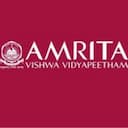GATE Syllabus 2025 - Download Syllabus PDF for CSE, ECE, EEE, ME, CE, EE
The Indian Institute of Technology, Roorkee has released the GATE syllabus 2025. The syllabus for the GATE exam 2025 witnessed no change. Hence, candidates must stick to the old syllabus.GATE 2025 Syllabus: The Indian Institute of Technology (IIT) Roorkee has released the GATE syllabus for the year 2025 on the official website. The syllabus for the GATE exam depends upon the subject the candidate is opting for. IIT Roorkee released the detailed syllabus for all 30 subjects in which the GATE exam 2025 is conducted. Aspirants preparing for the exam must know the comprehensive syllabus along with the exam pattern as well.
To get an understanding of the syllabus and exam pattern as well, candidates must solve GATE previous year question papers. This will help them assess their level of preparation for the exam and have an idea of their strong and weak topics. Accordingly, aspirants must make changes to their GATE preparation.
GATE GA syllabus, however, is the same for all candidates as it is the common paper irrespective of the subject the candidate has chosen. In this section, the questions are asked from Verbal Ability, Quantitative Aptitude, Analytical Aptitude, and Spatial Aptitude.
The computer science is the most sought-after branch for candidates appearing for the exam. The GATE syllabus for CSE includes topics such as Engineering Mathematics, Digital Logic, Computer Organization and Architecture, Programming and Data Structure, Algorithms and more.
Also Read: GATE Exam Pattern 2025
GATE Syllabus 2025
The GATE exam syllabus for each subject is available on the official website. Candidates who are preparing for admission to M.Tech program in IITs must have the syllabus ready with them. It is advisable to go through the GATE 2025 syllabus before starting the preparation for the exam. Below are the highlights of the syllabus, pattern, and exam structure for GATE:
- The GATE 2025 exam is conducted for 30 different subjects.
- Each question paper will contain 65 questions for a total of 100 marks.
- A total of 15 marks are allocated for General Aptitude (GA) questions in every paper.
- For the paper codes AR, CY, EY, GG, MA, PH, XH, and XL:
- 15 marks are for General Aptitude.
- The remaining 85 marks are devoted to the specific subject.
- For all other paper codes (except AR, CY, EY, GG, MA, PH, XH, and XL):
- 15 marks are for General Aptitude.
- 13 marks are allocated to Engineering Mathematics.
- The remaining 72 marks are devoted to the specific subject.
GATE Syllabus 2025 - ME, CSE, EE, ECE, CE
GATE Syllabus PDF: CSE, ME, EE, ECE, CE
GATE Question Papers & Solutions for Computer Science, ME, CE and Others
GATE Syllabus for All Subjects
GATE Syllabus 2025 - Previous Year Question Paper for AE
GATE Syllabus 2025 - Download PYQ for Computer Science
GATE Syllabus 2025 - Download PYQP for Maths, Physics, and Chemistry
GATE Syllabus 2025 - Data Science and Artificial Intelligence Question Paper
GATE Syllabus 2025 - Previous Question Paper for Engineering Sciences
GATE Exam Pattern 2025
GATE Syllabus 2025 for Civil, Electrical, and Mechanical
Frequently Asked Questions (FAQs)
Has the GATE syllabus 2025 changed?
No, the GATE syllabus is the same as of previous year. IIT Roorkee has released the GATE syllabus on its official website without making any changes to it.
Can I cover the GATE syllabus in 3 months?
No, the GATE syllabus is widely extensive and cannot be covered in just three months. Candidates are advised to start preparation for the GATE exam as early as possible during their graduation years. It takes around 8-12 months to cover the syllabus for the GATE 2025 exam.
What is the GATE General Aptitude syllabus?
The General Aptitude syllabus for the GATE exam covers four topics: Verbal Ability, Quantitative Aptitude, Analytical Aptitude, and Spatial Aptitude. The GA syllabus remains the same for all students irrespective of the subject they have opted for.
What is the GATE syllabus for Architecture & Planning?
The GATE syllabus for Architecture & Planning covers the following topics:
- Architecture
- Planning and Design
- Construction and Management
- Environmental Planning and Design
- Urban Design
- Landscape and Conservation
- Planning process
- Housing, Services and Infrastructure
- History and Contemporary Architecture
- Building Construction and Structural systems
- Building Services and Sustainability
- Regional and Settlement Planning
- Planning Techniques and Management
- Infrastructure Planning
What types of questions are asked in the GATE exam?
The GATE exam includes three types of questions:
- Multiple Choice Questions (MCQs)
- Multiple Select Questions (MSQs)
- Numerical Answer Type (NAT) questions
What is the GATE Syllabus for CSE?
The detailed GATE syllabus for Computer Science is available on the official website - gate2025.iitr.ac.in. Candidates can download the Computer Science syllabus for the GATE exam with the link provided here.
How to cover GATE syllabus for Mechanical Engineering?
To cover the Mechanical Engineering syllabus for the GATE exam, students must go through what they have studied in their B.Tech/Equivalent undergraduate program. Aspirants can practice GATE question papers to get an idea of the types of questions asked in the examination.
Loading...























